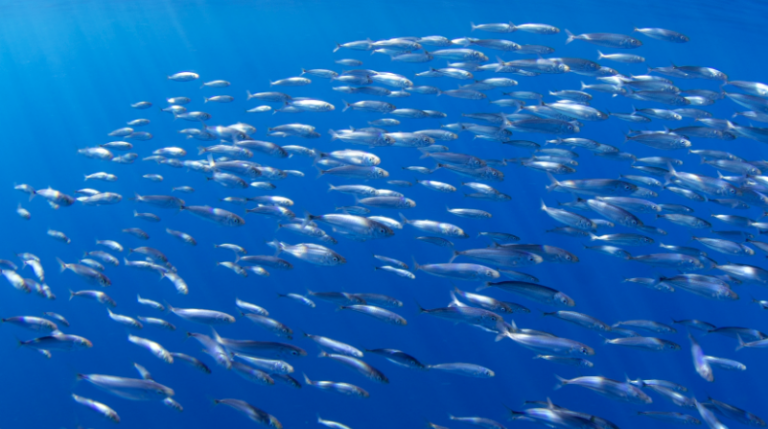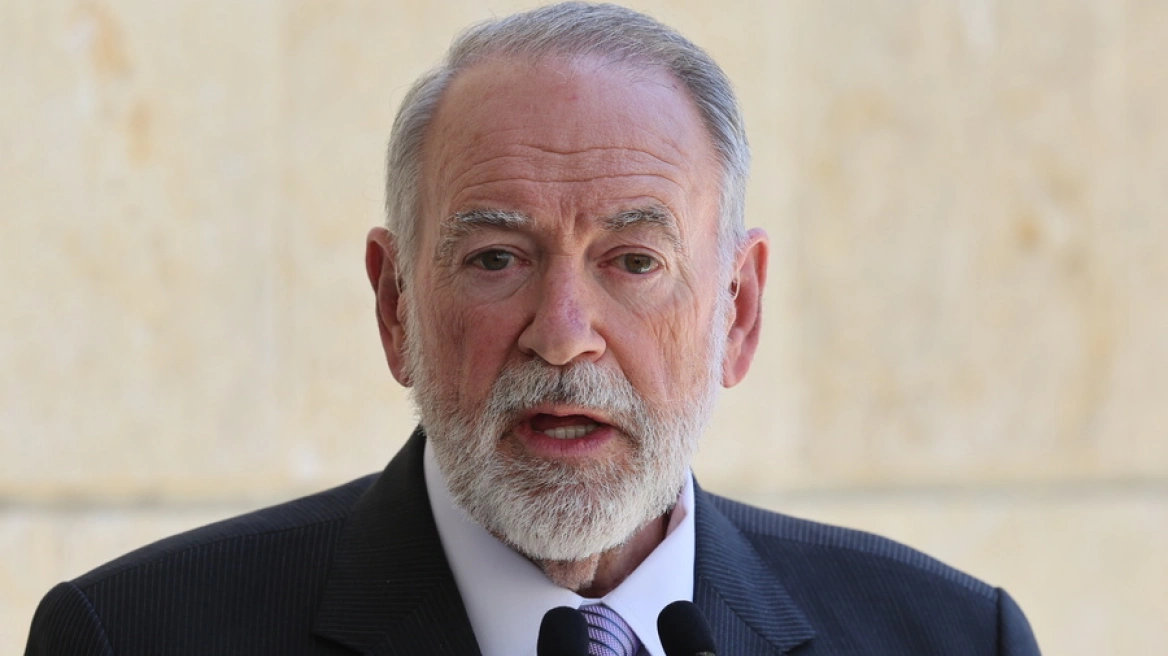Climate change and overfishing are causing fish to shrink in size and forcing many species to become “climate refugees” in search of water temperatures where they can survive.
Daniel Pauly, a professor at the University of British Columbia in Canada and an honorary doctor at Aristotle University of Thessaloniki (AUTH), is considered a leading scientist in marine fisheries biology. He was one of the first to sound the alarm about the global ecological impacts of overfishing.
Pauly was in Thessaloniki as a guest of AUTH’s Fishery Biology Laboratory for the 22nd Annual FishBase Symposium, titled “Fishes in Changing Ecosystems,” organized by AUTH’s Fishery Biology Laboratory.
According to Pauly, the main issues facing the world’s oceans are overfishing and climate change, particularly the warming of oceans that affects ecosystems. “As sea temperatures rise, water holds less oxygen. At the same time, warmer water requires more oxygen because fish and other gill-breathing organisms have a higher metabolism. Fish are essentially being squeezed because the water holds less oxygen, but they need more in warmer waters. It’s like animals trapped in a fire and unable to breathe,” explains the professor.
As a result of rising water temperatures, Pauly continues, fish are staying smaller so their gills can provide the necessary oxygen in warmer waters with naturally less oxygen.
“There are two opposing forces affecting fish. They need more oxygen in warmer waters, but the water now holds less oxygen, impacting their size. Oxygen must pass through the gills to supply the fish’s entire body, which is easier for smaller fish, as their gill surface area is relatively larger compared to their size. Larger fish have a smaller gill surface area relative to their size, making it harder for them to breathe. We fear that if we do not limit greenhouse gas emissions and the resulting warming, we will gradually lose the larger fish.”
Fish as Climate Refugees
As water warms, many marine species move northward to find cooler temperatures, such as fish migrating from Spain to England. “However, this is not happening everywhere. In the Mediterranean, for example, where there is a geographic barrier to the north, invasive species enter through the Suez Canal. In the Atlantic, some species may become ‘climate refugees’ seeking cooler waters to the north, while in the Mediterranean, ‘climate refugees’ may be the invasive species like the rabbitfish and lionfish.” Further explaining the situation, Pauly’s collaborator, Dr. Dona Dimarchopoulou, noted that fish move north from the Atlantic, from Morocco to Portugal and England. “But where can they go in the Mediterranean? In this case, they either move to deeper waters or their populations decline. In the Mediterranean, ‘climate refugees’ are the invasive species entering through the Suez Canal, growing, and multiplying at the expense of local species, creating problems for fishermen.”
According to Pauly, the situation can be reversed primarily by limiting overfishing. “The sea is very patient and generous with us. If we stop overfishing, we will achieve greater diversity and genetic reservoirs, allowing for different responses and behaviors to changing environmental conditions,” he concludes.
Dr. Daniel Pauly, who is French and Canadian, studied fisheries science in Germany and spent much of his career in tropical areas, particularly the Philippines. He is a professor at the University of British Columbia in Vancouver, Canada, where he directs the Sea Around Us project, initially funded by Pew Charitable Trusts and since 2014 by various foundations. The project is dedicated to studying, documenting, and mitigating the impacts of fishing on global marine ecosystems. He has authored over 1,000 scientific publications and about 20 books on marine organism biology and population management. Based on quantitative data, he is the most recognized scientist in the fields of “Marine Ecosystems” and “Fishing.” He is the founder of FISHBASE, the largest online encyclopedia and database for fish, creator of important mathematical modeling tools for aquatic ecosystems, and the father of many significant theoretical concepts.
Ask me anything
Explore related questions





